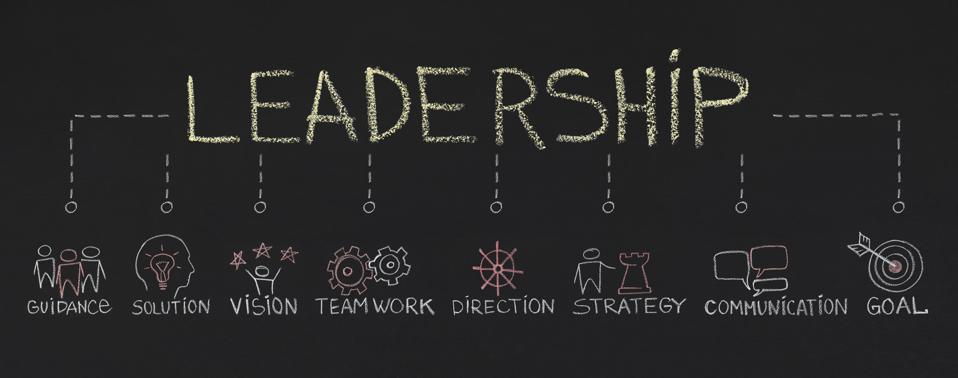Many think of leadership in terms of the outward qualities that enable someone to command a room. In business, a lot more is required of leaders than just extroversion and the ability to influence others.
Organizational leadership requires a well-rounded skill set and foundational knowledge of business, strategy formulation and execution, and interpersonal skills. For aspiring executives—as well as entrepreneurs and others who want to lead large teams—a commitment to developing those skills is paramount.
Here’s what organizational leadership means in business, four skills needed to lead an organization successfully, and who can benefit from developing those skills.
WHAT IS ORGANIZATIONAL LEADERSHIP?
Traditionally, leadership is thought of as a set of outward-facing capabilities that allow you to bring out the best in colleagues, along with an inward self-awareness to appreciate your impact on others.
Organizational leadership is slightly more nuanced than team leadership, as it refers to the skills and qualities needed to run an entire division, department, or company. While the broader understanding of leadership focuses more on interpersonal skills needed to organize team members around a common goal, successful organizational leadership requires a certain level of business acumen. In other words, those aspiring to organizational leadership roles must deliver traditional leadership skills at scale.
WHO NEEDS ORGANIZATIONAL LEADERSHIP SKILLS?
All professionals—no matter their position—need leadership skills to succeed in their careers. Yet, organizational leadership skills are particularly important for the following:
- Aspiring executives: Successfully running a division, department, or entire organization requires specific leadership skills. As an aspiring executive, you need to know how to execute the strategy guiding your organization.
- Experienced team leaders: If you already have experience leading a team, developing your organizational leadership skills is the next step toward applying your knowledge at scale.
- Entrepreneurs: As an entrepreneur, your leadership skills are an integral component of your business’s success. You need a strong foundation in organizational leadership to build your business from the ground up and adapt to change as the company grows and faces new challenges.
ORGANIZATIONAL LEADERSHIP SKILLS AND QUALITIES
1. An Understanding of Your Business
To lead your organization to success, you need a clear understanding of its inner workings, as well as the context in which it operates. This includes external forces, such as industry trends and changes in consumer behavior and preferences.
It’s also important to look inward to understand your organization’s structure and dynamics. If a misalignment exists between the internal and external forces shaping the business, it can be detrimental to its success.
Using your analysis of those internal and external forces, you need to develop a vision for your division, unit, or company and inspire those around you to execute on it. This requires communication with every level of your organization and leading through other managers. This is particularly challenging in contexts with dispersed teams and multi-site operations—especially in an age defined by remote work.
2. Communication and Interpersonal Skills
Strong communication and interpersonal skills are essential to organizational leadership.
Other interpersonal skills, like emotional intelligence, active listening, and delegation, are also necessary to organize your team around common goals. You must be able to shape your organization’s architecture to execute on your vision, which requires aligning its people, culture, and systems to deliver on tasks that create value and help your company grow.
3. Change Management and Innovation
To be a successful organizational leader, you need to manage change effectively.
One of your main goals should be to execute your vision and strategy and lead your organization to success. To do so, changes throughout your company will likely need to be made.
Unsurprisingly, communication plays an important role in change management. There are, however, many other components that come into play. For example, organization and a keen eye for detail are essential to keeping your strategy on track. Additionally, you need to identify opportunities for positive change, define a strategy to implement that change, and garner colleagues’ support.
4. Self-Awareness and Personal Development
Finally, becoming a strong organizational leader requires self-awareness and a commitment to continuous personal development.
If you want to become a better leader, conducting a self-assessment of your strengths and weaknesses is a great starting point. To do so, pay attention to your leadership style, and don’t be afraid to ask for feedback from colleagues. After you’ve identified your strengths and weaknesses, you can devise a plan to hone your skills.
By committing to personal development and understanding there will always be room for improvement, you can rise to the expanded responsibilities of your role and navigate challenges as they come.

DEVELOPING YOUR ORGANIZATIONAL LEADERSHIP SKILLS
The first step to succeeding in your future role is developing your organizational leadership skills so you can drive change at scale.
No matter your current position, pursuing a leadership training program is a worthwhile approach to honing your organizational leadership skills—whether you’re an aspiring executive, entrepreneur, or just looking to expand your knowledge.
Taking a course, such as Organizational Leadership, provides opportunities to assess your current skill set, identify improvement goals, and apply your learning. The course equips learners with the skills necessary to deliver on organizational responsibilities and personally develop to effectively lead divisions, units, and organizations. Participants in the course learn how to assess the context in which their organization operates and craft an effective statement of direction using vision, purpose, strategy, and identity.
Do you want to enhance your leadership skills? Ask for our course Organizational Leadership and our other leadership and management courses to discover how you can become a more effective leader and unleash the potential in yourself and others.
info@consultancyprocess.com

